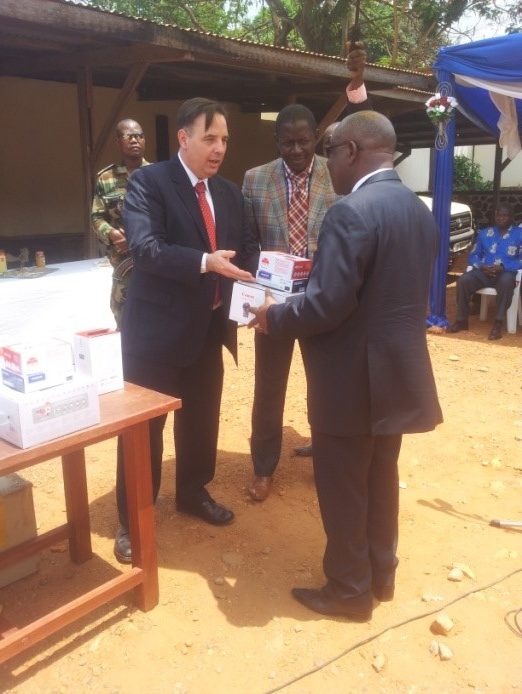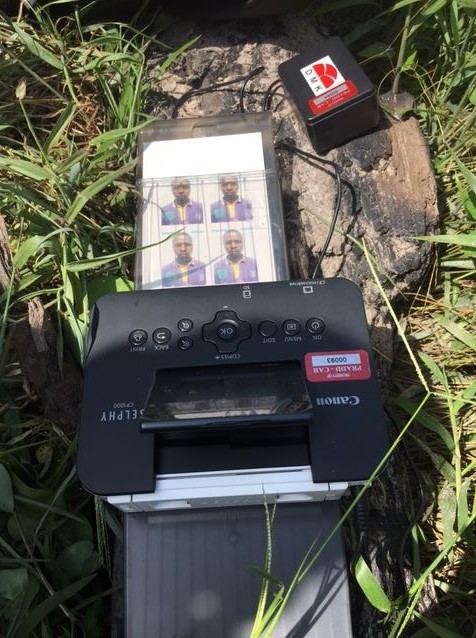Ensuring Legitimate Diamond Exports through Miner Identification

Since the liberalization of the mining sector in 1961, the Government of the Central African Republic (CAR) has faced challenges in ensuring traceability of its diamond exports. One such challenge is establishing an accurate database to identify individual miners as a source point for Central African diamonds entering the global diamond trade – a vital step towards certification per the Kimberley Process Operational Framework. This assures that no foreign nationals work the diamond mining sites. With support from the Property Rights and Artisanal Diamond Development Project (PRADD II), the Permanent Secretariat of the Kimberley Process (PSKP) is assisting the CAR Government to restore a conflict-free and legal diamond value chain by taking steps towards setting up a stringent process to identify miners working in CAR’s compliant zones.
In the past, the Minister of Mines, Energy and Hydraulics issued ID cards without a miner’s photo. Multiple miners sometimes used the same card at different mining sites. With this situation, diamonds cannot be traced back to a legitimate source and thus ensure that revenues from purchases do not flow to rebel groups perpetuating conflict and instability. With support from PRADD II, the ministry introduced small mobile units for producing photo ID cards for miners in the compliant zones of Berberati, Carnot, Gadzi, Nola and Boda. The kit consists of a digital camera, a portable rechargeable printer and printing materials. Training was provided to the provincial mining administration who travel to mining sites to register miners.

Within two months of launching the mining kits, the Prefectural Mining Service issued photo ID’s to 65 diamond pit owners and almost 300 workers. The cost to miners is less than five US Dollars – an affordable price that enables the ministry to maintain stocks of paper and ink and ensures the miners are legally registered. “The fact that the mining representatives are…coming to us helps to solve this problem which often arises among artisans in provinces that cannot access the studios that issue the cards,” said Thierry Ngodi, a miner at a site located 25 km outside of Boda. As for the PSKP Secretary, he welcomes this new reform that “facilitates the creation of a database and monitoring of artisanal miners,” leading to greater exports entering the conflict-free market.

